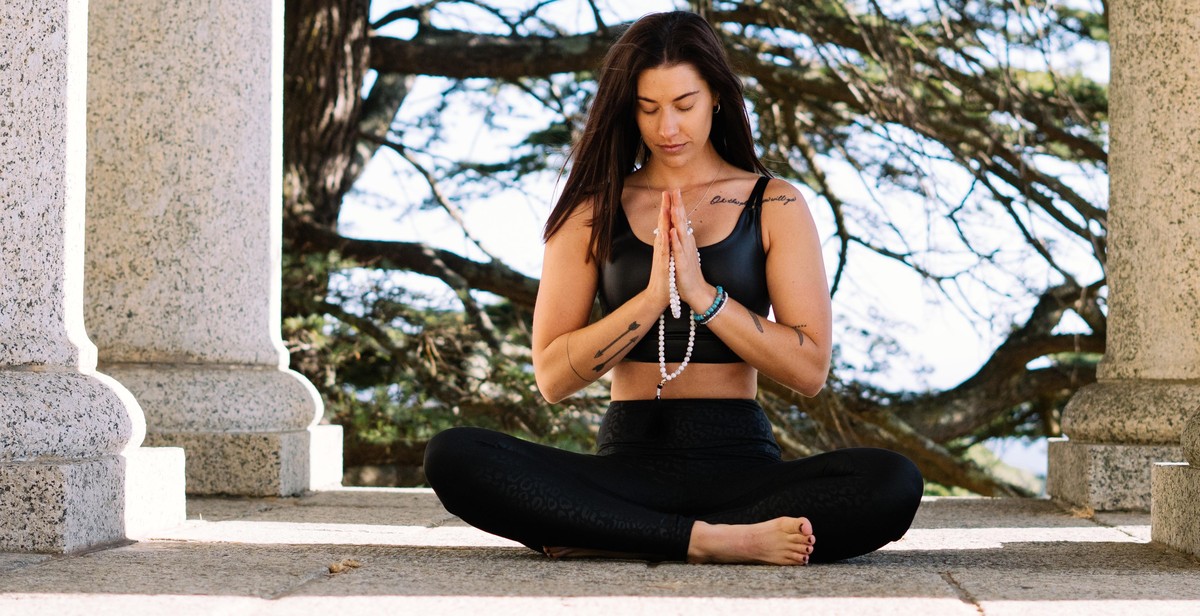How to Practice Meditation for Stress Relief and Mental Clarity
Meditation is a practice that has been around for thousands of years and has been used to achieve a state of mental clarity and inner peace. It involves focusing your attention on a particular object, thought, or activity to train your mind to become more aware and present in the moment.
What is Meditation?
Meditation is a technique that involves training the mind to focus and concentrate on a particular thought, object, or activity. It is a practice that has been used for centuries to achieve a state of mental clarity, inner peace, and relaxation. Meditation can be done in many different ways, including sitting, standing, walking, or even lying down.
There are many different types of meditation, including mindfulness meditation, transcendental meditation, and loving-kindness meditation, among others. Each type of meditation has its own unique benefits and can be practiced by anyone, regardless of their age, gender, or background.
Benefits of Meditation
The benefits of meditation are numerous and have been scientifically proven. Meditation can help reduce stress, anxiety, and depression, improve focus and concentration, increase self-awareness, and promote a sense of inner peace and calmness.
Regular meditation practice has also been linked to improved sleep, lower blood pressure, and reduced symptoms of chronic pain and inflammation. It can also help improve immune function and increase feelings of happiness and well-being.
Overall, meditation is a powerful tool that can help you achieve a state of mental clarity, inner peace, and relaxation. Whether you are new to meditation or have been practicing for years, it is a practice that can benefit anyone, regardless of their background or experience level.
Preparing for Meditation
Meditation can be a powerful tool to reduce stress and improve mental clarity. However, to reap the benefits of meditation, it’s important to prepare yourself properly. Here are some tips to help you prepare for your meditation practice:
Choose a Quiet and Peaceful Place
Find a quiet and peaceful place where you won’t be disturbed. This could be a spare room in your house, a quiet corner in your garden, or a peaceful spot in nature. Make sure the space is clean and free from clutter, and if possible, use candles or incense to create a calming atmosphere.
Sit Comfortably
It’s important to sit comfortably during meditation. You can sit on a cushion or a chair, or even lie down if that’s more comfortable for you. Make sure your back is straight and your shoulders are relaxed. You can also use props like blankets or pillows to support your body if needed.
Set a Timer
Setting a timer can help you stay focused during your meditation practice. Start with a short amount of time, such as 5 or 10 minutes, and gradually increase the time as you become more comfortable with the practice. You can use a phone app or a meditation timer to help you keep track of the time.
Choose a Meditation Technique
There are many different meditation techniques to choose from, such as mindfulness meditation, loving-kindness meditation, or body scan meditation. Experiment with different techniques to find one that resonates with you. You can also use guided meditations or meditation apps to help you get started.
- Find a quiet and peaceful place where you won’t be disturbed
- Sit comfortably with your back straight and shoulders relaxed
- Use props like blankets or pillows to support your body if needed
- Set a timer to help you stay focused
- Choose a meditation technique that resonates with you

Different Types of Meditation Techniques
Meditation is a powerful tool to help reduce stress and improve mental clarity. There are many different types of meditation techniques, each with its own unique approach and benefits. Here are some of the most popular meditation techniques:
Mindfulness Meditation
Mindfulness meditation is a technique that involves paying attention to the present moment without judgment. This technique requires you to focus on your breath and observe your thoughts as they arise without getting caught up in them. Mindfulness meditation has been shown to reduce stress, improve focus, and increase emotional regulation.
Transcendental Meditation
Transcendental meditation is a technique that involves repeating a mantra silently in your mind to help you achieve a deep state of relaxation. This technique is typically practiced for 20 minutes twice a day. Transcendental meditation has been shown to reduce stress, anxiety, and depression.
Mantra Meditation
Mantra meditation is similar to transcendental meditation, but instead of using a specific mantra, you can choose any word or phrase to repeat silently in your mind. This technique helps to quiet the mind and reduce distractions. Mantra meditation has been shown to reduce stress and improve focus.
Yoga Meditation
Yoga meditation is a combination of physical postures, breathing techniques, and meditation. This technique helps to improve flexibility, strength, and balance while also reducing stress and promoting relaxation. Yoga meditation has been shown to improve overall health and well-being.
| Technique | Description | Benefits |
|---|---|---|
| Mindfulness Meditation | Paying attention to the present moment without judgment | Reduces stress, improves focus, and increases emotional regulation |
| Transcendental Meditation | Repeating a mantra silently in your mind to achieve relaxation | Reduces stress, anxiety, and depression |
| Mantra Meditation | Repeating a word or phrase silently in your mind to quiet the mind | Reduces stress and improves focus |
| Yoga Meditation | A combination of physical postures, breathing techniques, and meditation | Improves overall health and well-being while reducing stress and promoting relaxation |

How to Practice Meditation for Stress Relief and Mental Clarity
1. Sit Comfortably with Good Posture
Find a quiet and peaceful place where you can sit comfortably without any distractions. Sit cross-legged on a cushion or a chair with your spine straight and your shoulders relaxed. Place your hands on your knees with your palms facing up or down.
2. Keep Your Eyes Closed or Softly Focused
Close your eyes or keep them softly focused on a spot in front of you. This will help you to reduce external distractions and focus your attention inward.
3. Focus on Your Breath or Chanting
Take a deep breath and exhale slowly. Focus your attention on your breath as it moves in and out of your body. Alternatively, you can chant a mantra or a word that has a special meaning to you. This will help you to calm your mind and reduce stress.
4. Observe Your Thoughts without Judgment
As you meditate, you may notice thoughts and emotions arising in your mind. Do not try to suppress them or get attached to them. Instead, observe them without judgment and let them pass by. This will help you to develop a sense of inner peace and clarity.
5. End Your Meditation Session Gently
When you feel ready to end your meditation session, take a deep breath and slowly open your eyes. Take a moment to stretch your body and notice how you feel. Carry the sense of calm and clarity with you as you go about your day.
- Sit comfortably with good posture
- Keep your eyes closed or softly focused
- Focus on your breath or chanting
- Observe your thoughts without judgment
- End your meditation session gently

Tips for Successful Meditation
Meditation can be challenging, especially if you’re new to it. However, with a little bit of patience and consistency, you can make it a regular part of your routine. Here are some tips to help you achieve successful meditation:
Be Consistent
Consistency is key when it comes to meditation. Whether you decide to meditate once a day or multiple times a week, make sure you stick to your schedule. This will help you develop a habit and make it easier to meditate in the future.
Start Slow and Gradually Increase Your Time
When you first start meditating, it’s important to take it slow. Start with just a few minutes a day and gradually increase your time as you become more comfortable. This will help you avoid burnout and make meditation a sustainable practice.
Find a Meditation Group or Teacher
Joining a meditation group or finding a teacher can be incredibly helpful, especially if you’re new to meditation. They can provide guidance, support, and accountability, and help you deepen your practice.
Be Patient and Don’t Give Up
Like any new skill, meditation takes time and practice to master. Be patient with yourself and don’t give up if you don’t see immediate results. Remember that the benefits of meditation are cumulative and will become more apparent over time.
- Be consistent with your practice.
- Start slow and gradually increase your time.
- Join a meditation group or find a teacher.
- Be patient and don’t give up.
By following these tips, you can make meditation a regular part of your routine and reap the benefits of reduced stress and increased mental clarity.

Conclusion
Meditation is a powerful tool for stress relief and mental clarity. It has been practiced for centuries and has been scientifically proven to have numerous benefits for both the mind and the body. By incorporating meditation into your daily routine, you can reduce stress, improve focus, and increase overall well-being.
When starting your meditation practice, it’s important to find a comfortable and quiet space where you can focus without distractions. Begin with shorter sessions and gradually increase the duration as you become more comfortable. Remember to focus on your breath and allow your thoughts to come and go without judgment.
There are many different types of meditation, so it’s important to find the one that works best for you. Whether it’s mindfulness meditation, loving-kindness meditation, or another type, the benefits of a regular practice are clear.
Additionally, incorporating other healthy habits such as exercise, a balanced diet, and good sleep hygiene can further enhance the benefits of meditation. By taking care of your mind and body, you can live a happier and healthier life.
Overall, meditation is a simple yet powerful practice that can have a profound impact on your well-being. By making it a regular part of your routine, you can reduce stress, improve focus, and increase overall happiness. Give it a try and see the benefits for yourself!
